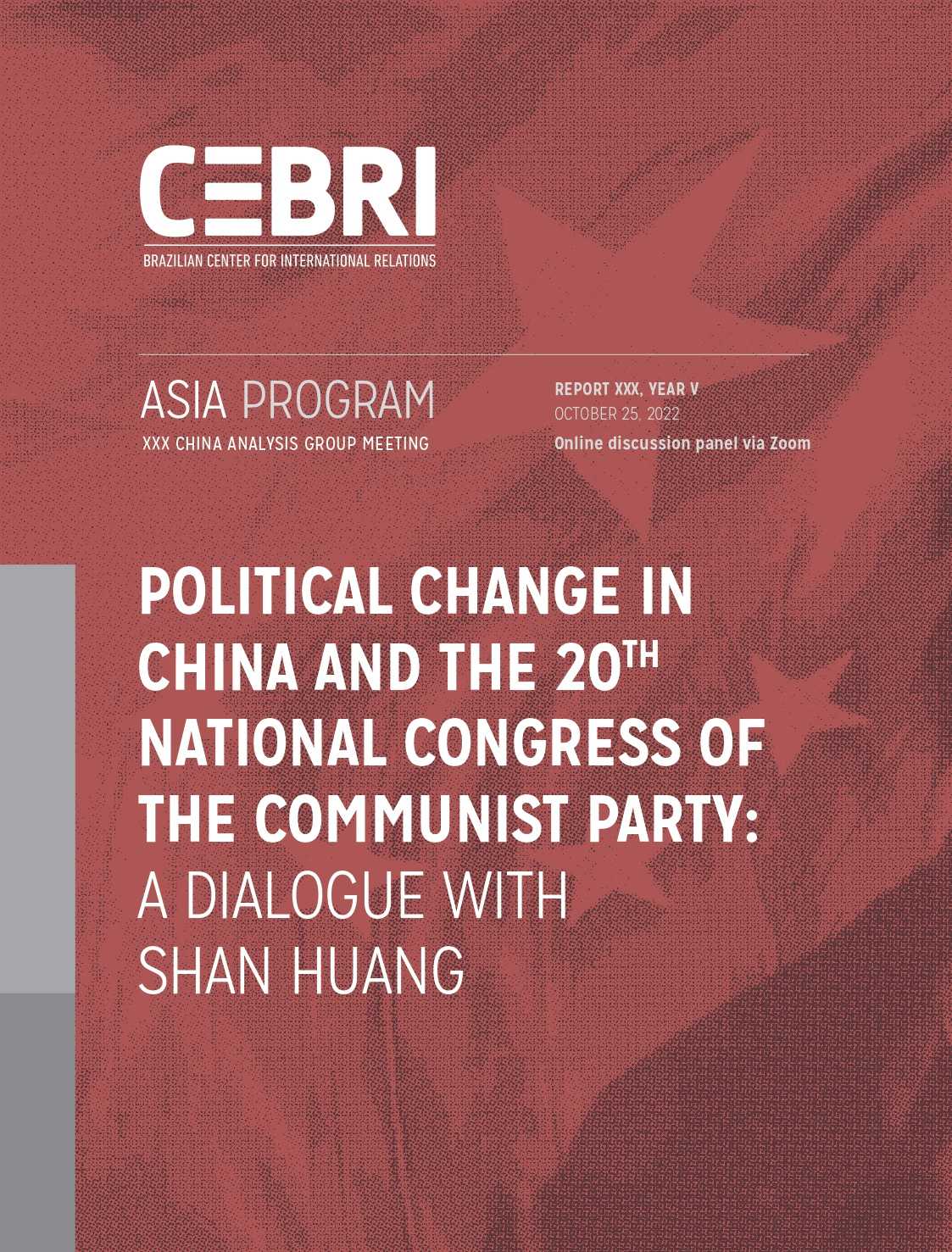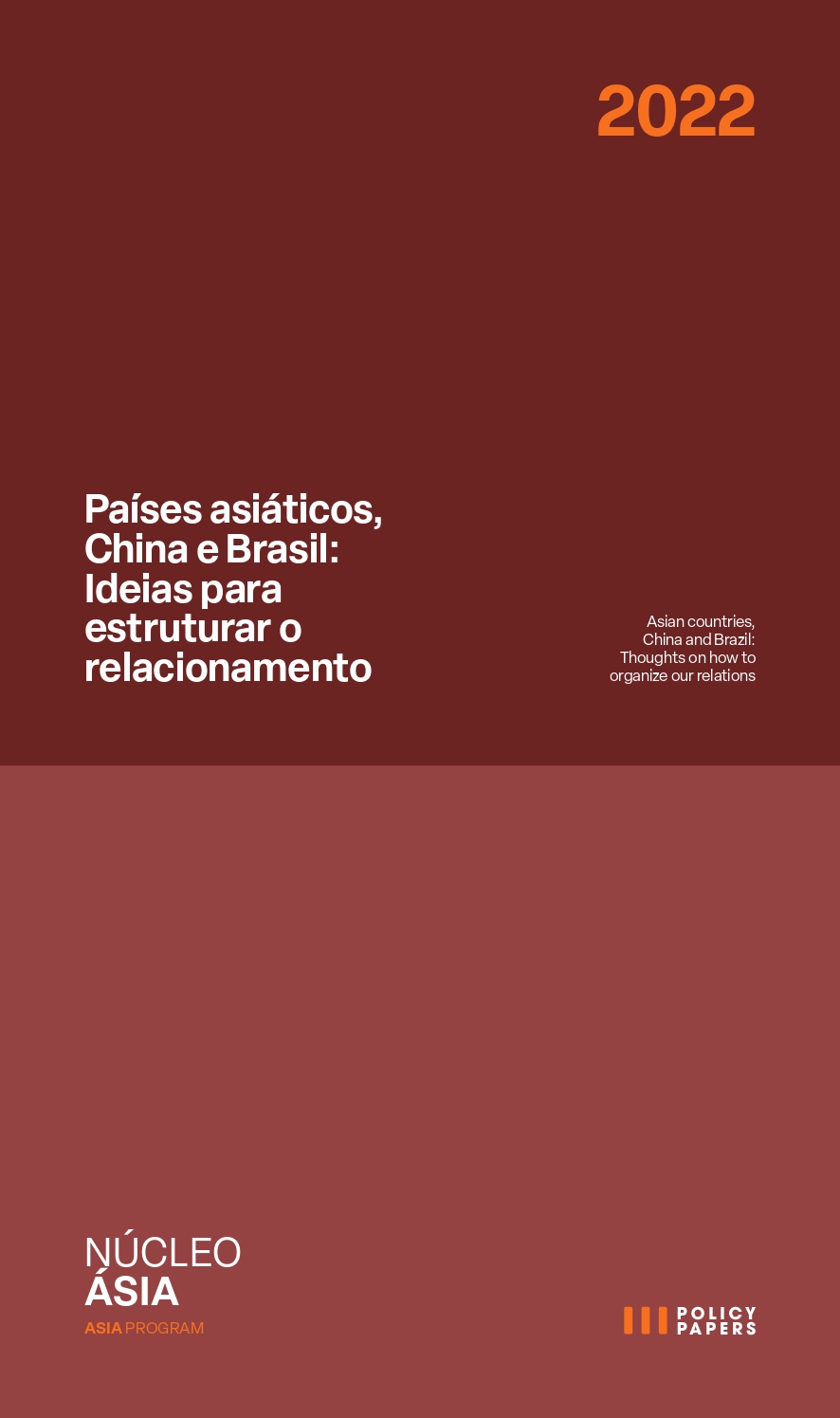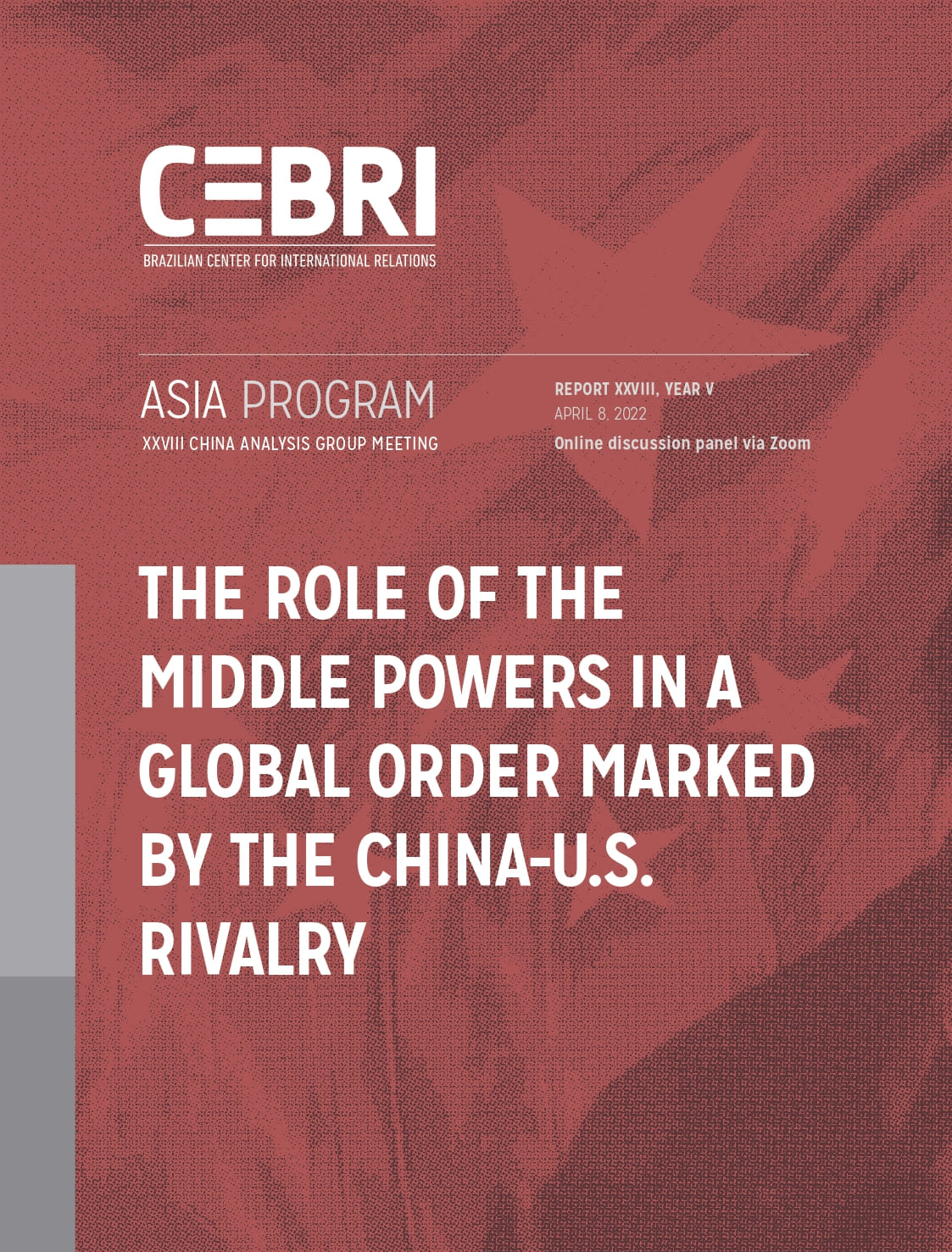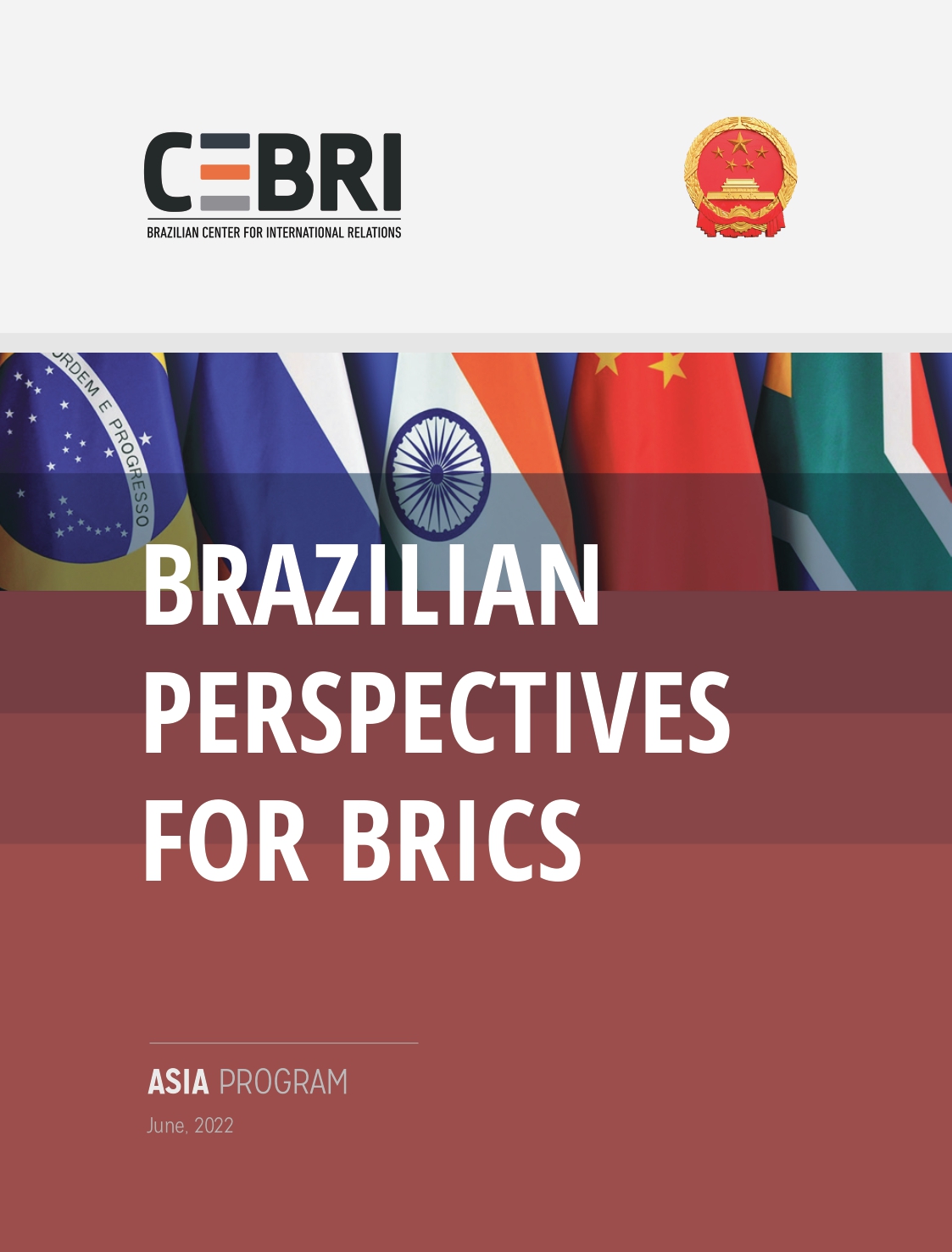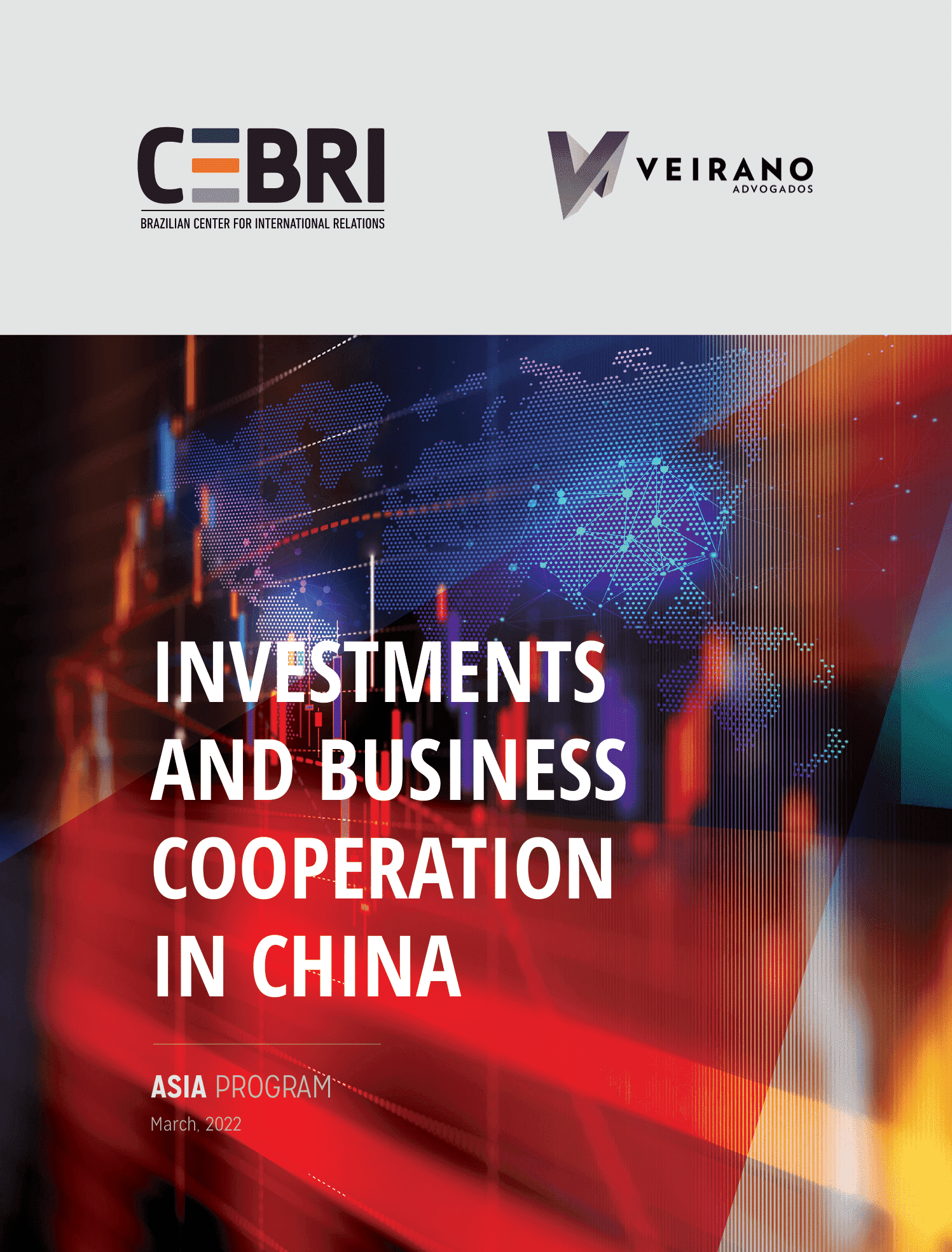Reports
Uma nova moldura para acordos comerciais e de investimento entre Brasil e China?
- Asia
- 17 december 2019
On December 17th, CEBRI's China Analysis Group held its XVI meeting, ending the group's cycle of meetings in 2019. Under the coordination of Tatiana Rosito, the meeting addressed the possibilities and challenges of a preferential trade agreement between Brazil and China, considering their effects on the diversification of Brazilian exports and on macroeconomic variables, based on studies conducted by IPEA.
The panelists of the event were Vice-President of the Board of Trustees of CEBRI, Ambassador José Alfredo Graça Lima; Director of Studies, Economic Relations and International Policy at IPEA, Ivan Tiago Machado Oliveira; and Deputy Secretary for Foreign Investment at the Executive Secretariat (CAMEX) of the Ministry of Economy Renato Coelho Baumann. Comments were made by the Directors of the Center for Integration and Development Studies (CINDES) Sandra Polonia Rios and José Tavares de Araújo.
On December 17th, CEBRI's China Analysis Group held its XVI meeting, ending the group's cycle of meetings in 2019. Under the coordination of Tatiana Rosito, the meeting addressed the possibilities and challenges of a preferential trade agreement between Brazil and China, considering their effects on the diversification of Brazilian exports and on macroeconomic variables, based on studies conducted by IPEA.
The panelists of the event were Vice-President of the Board of Trustees of CEBRI, Ambassador José Alfredo Graça Lima; Director of Studies, Economic Relations and International Policy at IPEA, Ivan Tiago Machado Oliveira; and Deputy Secretary for Foreign Investment at the Executive Secretariat (CAMEX) of the Ministry of Economy Renato Coelho Baumann. Comments were made by the Directors of the Center for Integration and Development Studies (CINDES) Sandra Polonia Rios and José Tavares de Araújo.
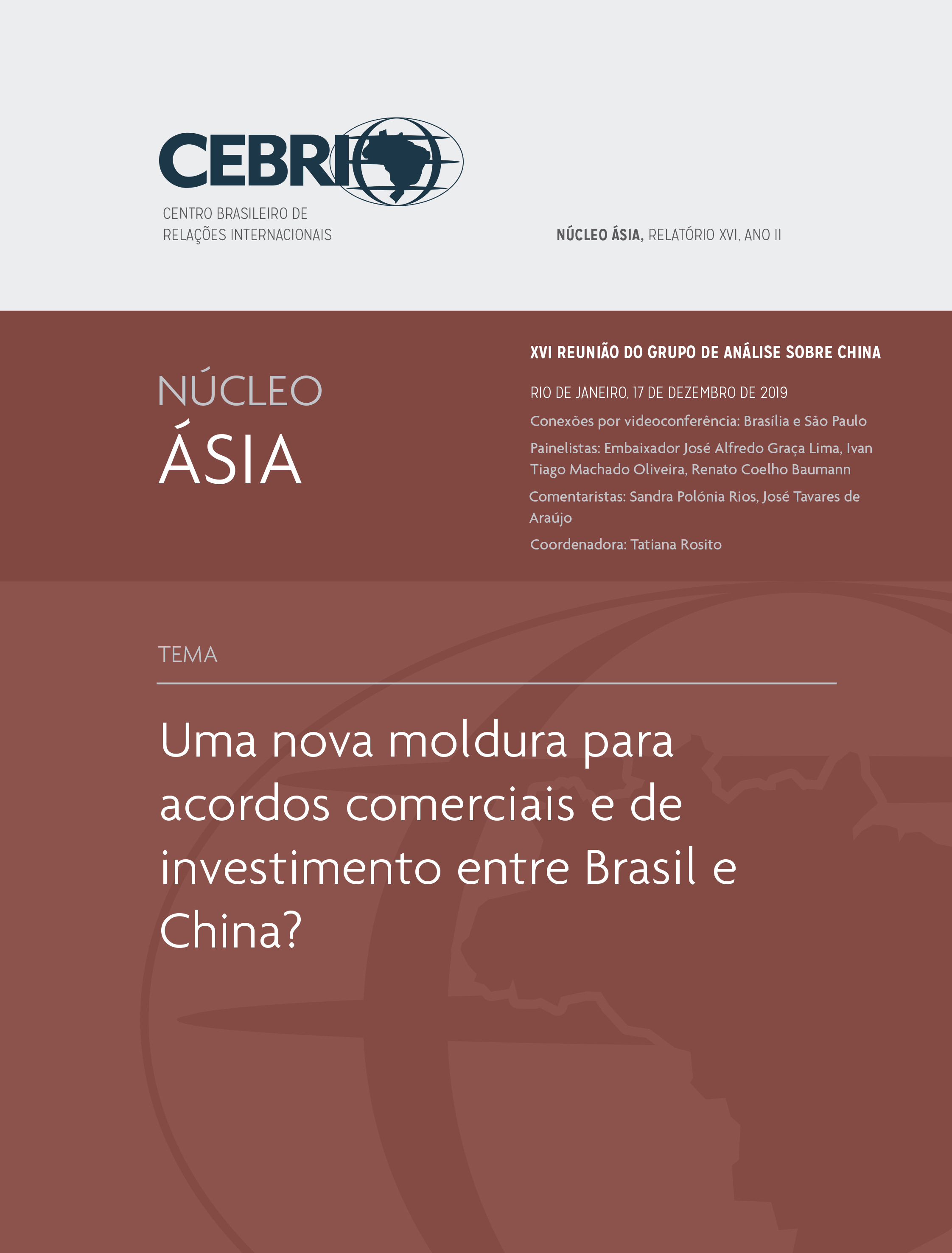








6932f633dad5f.png)
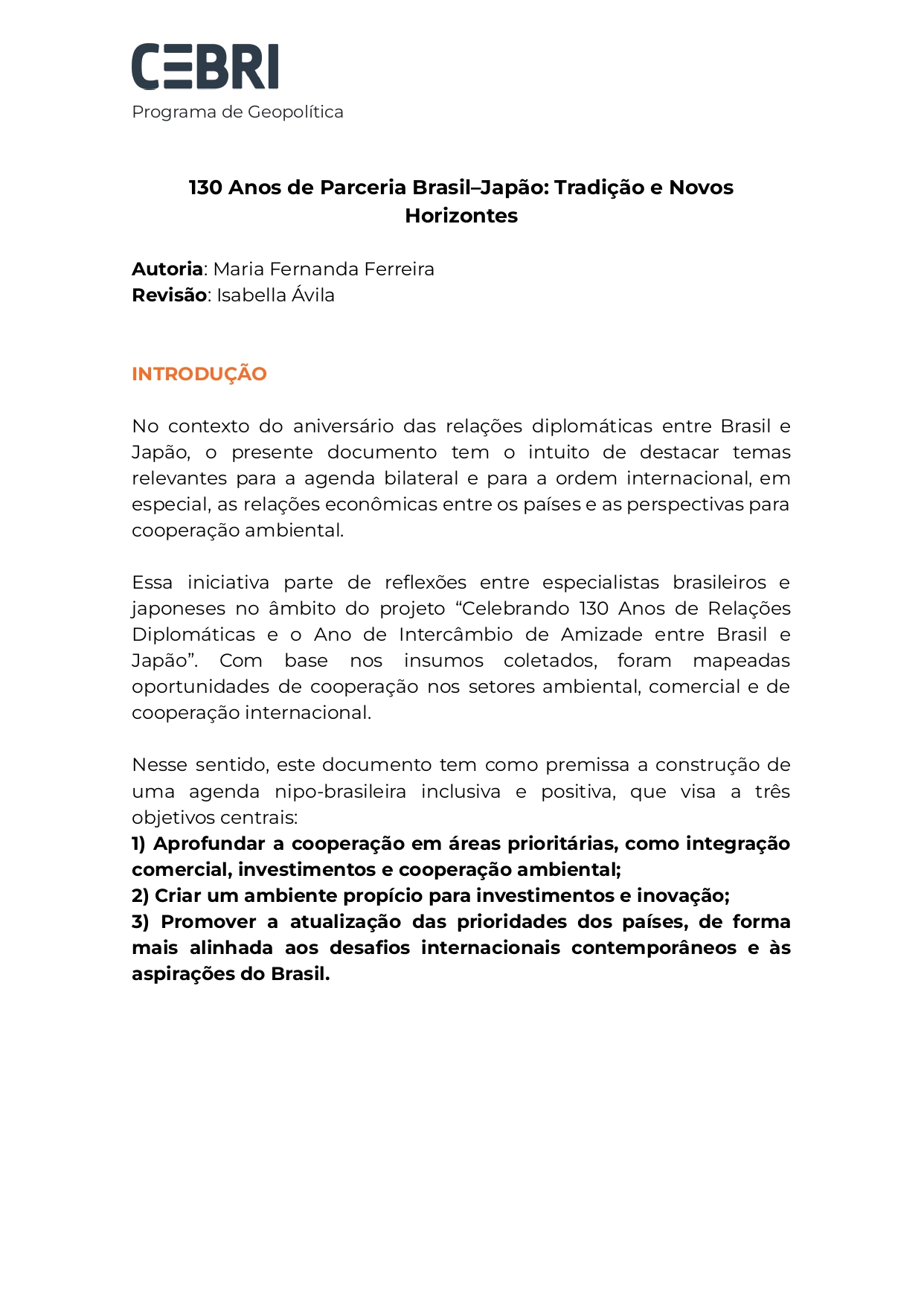
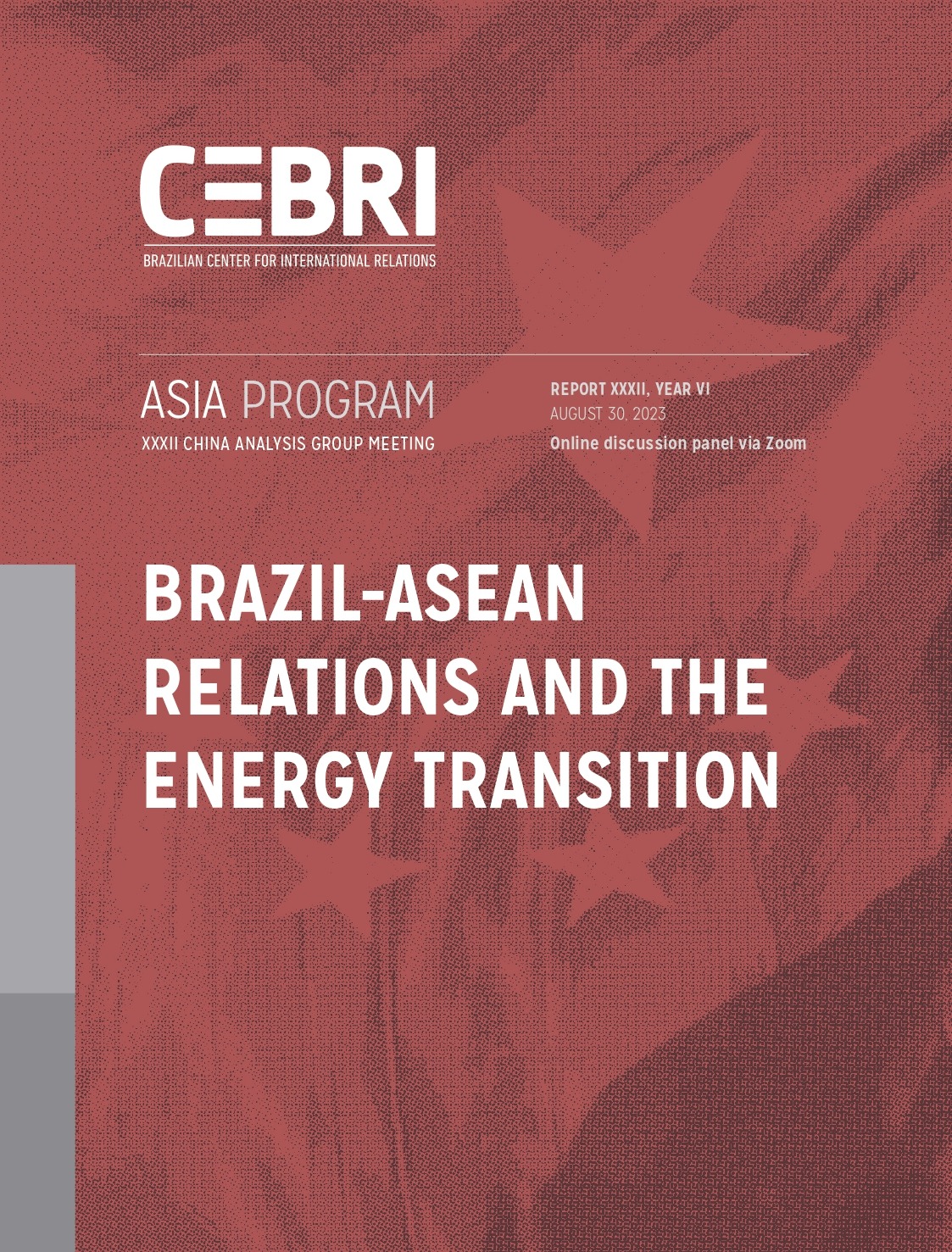
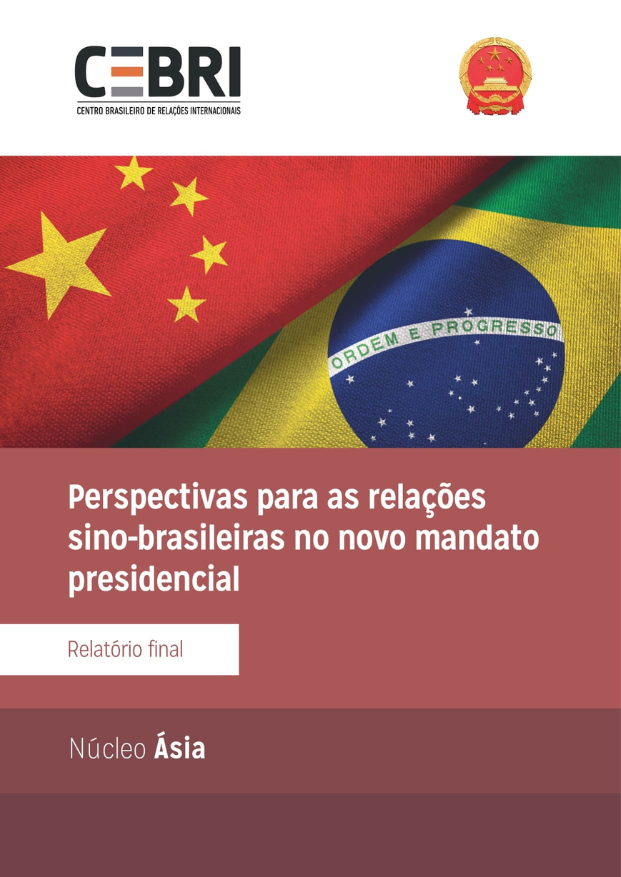
63dd462196071.jpg)
